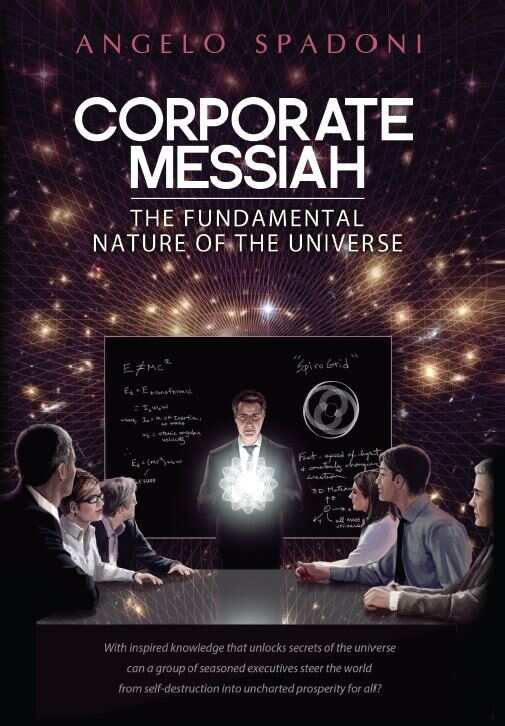Corporate Messiah
The Fundamental Nature of the Universe
Spadoni’s book boldly goes where even sci-fi has rarely gone before.
Angelo Spadoni blends real science with clever fiction to tell the story of Miles Manta, an intelligent and persuasive leader planning to enact world peace through a corporate monopoly on new technology. The blend of cutting-edge physics, historical groundwork, and even religious inspiration makes Corporate Messiah a mind-bending look at the future using academically sound logic and real theories.
Manta is a member of the Trek organization, a collection of corporate CEOs who get together to share their challenges with like-minded businesspeople. Unbeknownst to any of them, this group was predestined for a secret mission to save the world. Manta has been sent to bring them together, teach them certain truths about the fabric of the universe, and inspire them to create a global monopoly on a new technology so that it can be developed and released in the most ethical way. It can be argued that a group of CEOs creating a global monopoly is the antithesis of ethics, but these details only play a supporting role to the book’s real purpose.
The story encourages readers to skip chapters and invest interest where they are most comfortable. Spadoni has even gone so far as to open a forum for writers to propose alternatives for the chapter he has dedicated to religious exploration. He hopes “these ‘rewrites’ can be enjoyed with a healthy understanding that each of us has the freedom to practice what we believe.” Similarly, he interjects in chapter 7 that Manta’s lecture will be particularly math heavy and that it could be read “in a cursory manner, possibly making notes” for more detailed study later. Clearly the objective is for Corporate Messiah to reach the broadest possible audience.
Spadoni is a mathematician and an engineer. The largest part of his book is given over to describing his theory of the fundamental nature of the universe. He does this with sensitivity, finding the perfect balance between authority and accessibility. However, the energy and enthusiasm he pours into explaining his theory leaves the rest of the narrative feeling a little weak. Spadoni poses a question at the outset—“Can a group of seasoned executives steer the world from self-destruction into uncharted prosperity for all?”—but delivers only a tremendously detailed backstory with no real resolution. The action takes place almost exclusively in a meeting room, and his characters are not multidimensional. This could easily have been a riveting science fiction story hybridized with the refreshing support of provability.
Corporate Messiah is brief enough to be digestible and interesting enough to be enjoyable to followers of evolutionary science and fans of science fiction. Spadoni gives complex theories an accessibility that peer review and journals would not have afforded. It is a bold book with tremendous potential, especially if a sequel were offered.
Reviewed by
Sara Budzik
Disclosure: This article is not an endorsement, but a review. The publisher of this book provided free copies of the book and paid a small fee to have their book reviewed by a professional reviewer. Foreword Reviews and Clarion Reviews make no guarantee that the publisher will receive a positive review. Foreword Magazine, Inc. is disclosing this in accordance with the Federal Trade Commission’s 16 CFR, Part 255.

